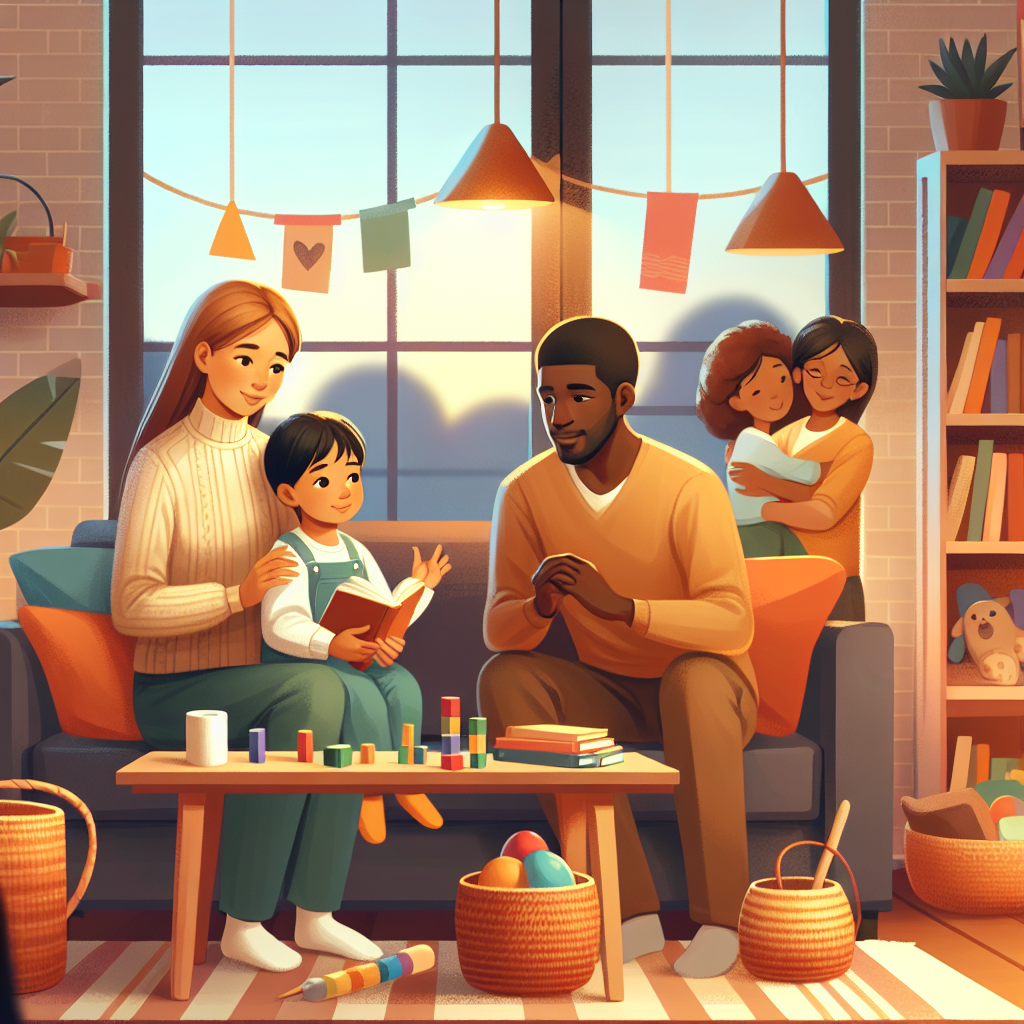
Ultimate Parenting Tips: Supporting Social Skills Development in Children with Learning Disabilities
Introduction
In today’s interconnected world, social skills are crucial for children to navigate their environments and build meaningful relationships. For children with learning disabilities, these skills may not come as naturally, making it vital for parents to take proactive steps in fostering their development. In this article, we will explore effective methods, engaging strategies, and personal experiences to provide essential insights into the topic. Parenting Tips: Supporting Social Skills Development in Children with Learning Disabilities isn’t just about advice; it’s a pathway to ensuring that every child not only survives but thrives in social settings.
Understanding Learning Disabilities and Social Skills
What Are Learning Disabilities?
Learning disabilities refer to a wide range of disorders that affect the ability to learn, process information, and communicate effectively. Children with these disabilities may struggle with reading, writing, math, or expressive language. According to the National Center for Learning Disabilities, approximately 1 out of 5 children has a learning disability.
Why Are Social Skills Important?
Social skills encompass the behaviors that allow individuals to interact positively and effectively with others. For children with learning disabilities, the ability to form friendships, cooperate with peers, and communicate their needs can be particularly challenging. These skills are crucial as they not only influence academic performance but also impact self-esteem and emotional well-being.
Key Parenting Tips: Supporting Social Skills Development
1. Create a Safe and Open Environment
Establishing a home environment where your child feels safe to express themselves is vital. This means encouraging open communication and validating their feelings.
Example Case Study:
Sarah, a 10-year-old with a learning disability, often felt embarrassed during group activities at school. Her parents implemented a "feelings jar" at home, where family members could drop in notes about how they felt and why. This allowed Sarah to express her feelings in a non-threatening space, which, in turn, improved her confidence in voicing her concerns at school.
2. Promote Peer Interaction
Encouraging your child to engage with peers in various settings can significantly enhance their social skills. This can include enrolling in clubs or participating in community events.
| Activity | Social Skills Developed |
|---|---|
| Team sports | Cooperation, teamwork |
| Art classes | Sharing, expressing creativity |
| Drama clubs | Communication, role-playing |
Analysis: Engaging in group activities can help children practice social interactions in a safe space, building their confidence as they interact with peers.
3. Use Social Stories
Social stories are simple narratives that help children understand social situations by illustrating expected behaviors and responses.
Example Case Study:
Mark, a 7-year-old with autism, struggled during lunch hours. His parents created a social story about lunchtime expectations—waiting in line, asking for help, and joining friends at a table. After reading this story, Mark felt more comfortable and was able to navigate lunch more successfully.
4. Role-Playing Situations
Role-playing can provide a practical approach to practice social scenarios. Children can take turns playing the roles of different characters to understand various perspectives.
Analysis: This technique enables children to rehearse social interactions in a supportive environment, reducing anxiety about real-world applications.
5. Teach Empathy and Emotional Recognition
Modeling empathy and emotional recognition can help children grasp the nuances of social interactions. By discussing feelings in various situations, children learn to identify and respond appropriately.
| Emotion | Recognizing Cues | Appropriate Response |
|---|---|---|
| Happiness | Smiling, laughter | Join in the joy, share a compliment |
| Frustration | Frowning, crossed arms | Offer help, encourage expression |
Example Case Study:
During family discussions, Anna’s parents discussed how different characters in movies felt and why. This simple technique helped Anna, a child with ADHD, recognize emotions in herself and others, enhancing her social interactions.
Conclusion
As parents, your role in supporting social skills development in children with learning disabilities can be transformative. By creating a nurturing environment, promoting peer interaction, utilizing social stories, engaging in role-play, and teaching empathy, you are laying a solid foundation for your child’s social future. Remember, Parenting Tips: Supporting Social Skills Development in Children with Learning Disabilities are not just theoretical; they are actionable strategies that can lead to meaningful change.
FAQs
1. What are some common signs that my child may have a learning disability?
Common signs include difficulty reading, trouble following instructions, problems with math, and challenges in organizing tasks.
2. How can I assess my child’s social skills?
Observe your child in different social situations and take note of their interactions, appeal for feedback from teachers, and consider formal assessments if necessary.
3. How important is family involvement in developing social skills?
Family involvement is crucial as it creates a supportive environment, allowing children to practice skills and learn from both successes and mistakes.
4. Can therapy help my child develop social skills?
Yes, many children benefit from therapies such as speech therapy and social skills groups, where they can learn and practice in structured settings.
5. How can I be supportive without being overly protective?
Encourage your child to make choices and face challenges, while providing guidance and being available for support when needed.
With thoughtful action and consistent support, you can equip your child with the social skills they need to thrive, ensuring they are prepared for every interaction life throws their way. Engage with these Parenting Tips: Supporting Social Skills Development in Children with Learning Disabilities and watch your child blossom socially.













